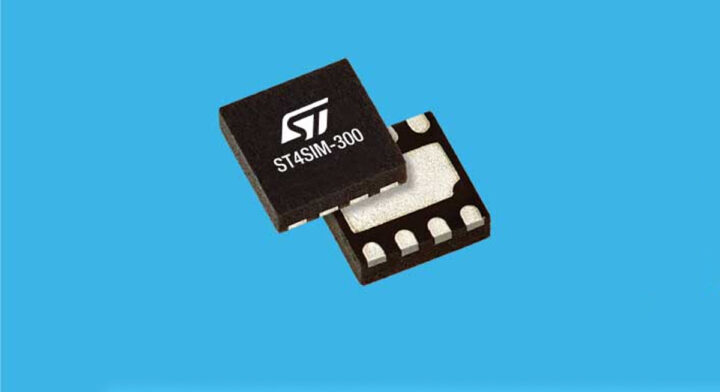STMicroelectronics has recently released the ST4SIM-300 eSIM, the first embedded SIM (eSIM) IC that complies with the new GSMA eSIM IoT Technical Specification (SGP.32). The chip is fully compliant with remote SIM provisioning of the GSMA eSIM IoT standards, so it works with 2G, 3G, 4G (LTE), CDMA, NB-IoT, and Cat-M networks. It is designed for small IoT devices and allows system operators to remotely program device subscriber identities over the air (OTA), making it a plug-and-play solution for seamless integration and management.
Previously, we have written about Hologram’s IoT eSIM Chip that provides global connectivity and comes with 2FF, 3FF, 4FF, and Mff2- M2M form factors. We have also written about the Conexio Stratus Pro battery-powered nRF9161 development kit that supports eSIM as an option.
ST4SIM-300 eSIM specifications
- Microcontroller – ST33K1M5M 32-bit Arm Cortex-M35P MCU
- Designed based on eSIM + eSE (embedded Secure Element)
- I/O
- Asynchronous serial I/O port ISO/IEC 7816-3 compatible (T=0 protocol)
- I2C/SPI (package dependent)
- Network & Connectivity
- Remote Provisioning – GSMA compliant
- Bootstrap Profile – Provided by trusted partner
- Profile Capacity – Up to 7 (memory dependent)
- Network Support – 2G, 3G, 4G(LTE), CDMA, NB-IoT, CAT-M
- Applications – SIM/USIM/ISIM/CSIM
- OTA Updates – SMS, CAT-TP, HTTPS (DNS)
- Security Features
- Secure Element – Access control (ARF/PKCS#15)
- Cryptographic Support:
- Symmetric: DES/3DES/AES
- Asymmetric: RSA (up to 2048 bits)
- Elliptic Curve: (up to 521 bits), NIST P-256, brainpoolP256r1
- Authentication – MILENAGE, TUAK, CAVE, XOR
- Remote Management – HTTPS (TLS v1.0/1.1/1.2)
- Common Criteria – EAL6+ certified
- Environmental & Power
- Voltage – 1.8V, 3V
- Industrial Grade JEDEC JESD47 qualified
- Power Saving – PSM & eDRX (ETSI Rel17)
- Temperature Range: -40°C to +105°C
- Packages
- Card plugin: 2FF, 3FF, or 4FF
- VFDFPN8 (6x5mm), wettable flank (MFF2)
- WLCSP24
The most interesting part about this eSIM chip is the support for the SGP.32 standard. It’s a very new standard that was just released in 2023 and designed to make the remote provisioning of eSIM’s easy for OEMs and system integrators. In simpler terms, this standard introduces features that allow OEMs to manage configure, and monitor their own subscriber identities rather than the telecom operator. It also allows for OTA configuration for operators on a worldwide scale. If we take the example of IoT asset trackers, now they can switch between cellular networks seamlessly and maintain connectivity as shipments cross borders and regions.
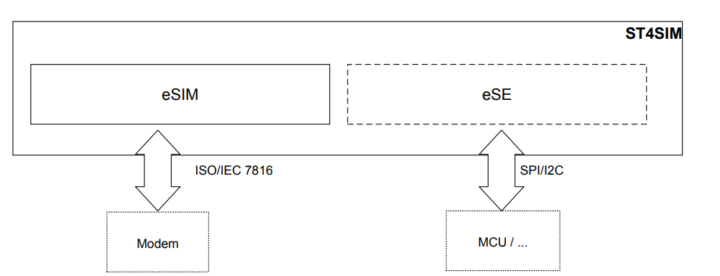
The ST4SIM-300M combines an eSIM with an embedded secure element (eSE) section (that is the Arm Cortex-M35P CPU) inside the same chip. This eSE section can be used to provide secure storage, cryptographic services, etc. via Java Card applets. The eSE and eSIM components on this chip use different communication methods. The eSE uses SPI or I2C, while the eSIM uses the standard ISO/IEC 7816 protocol. This means you can only use the eSE if you have a WLCSP chip package that supports all of these communication methods.
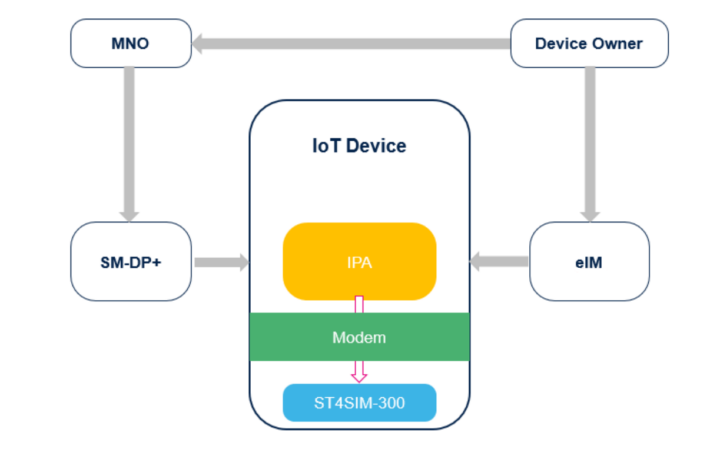
The ST4SIM-300 eSIM enables seamless switching between cellular networks without physical access to devices. To update, the device manager obtains new profiles from the desired mobile network operator (MNO). These profiles are sent to the MNO’s subscription manager, and the device operator instructs the eSIM remote manager to download them onto the device. Finally, the updated subscriber ID is communicated to the ST4SIM-300 through the device modem.
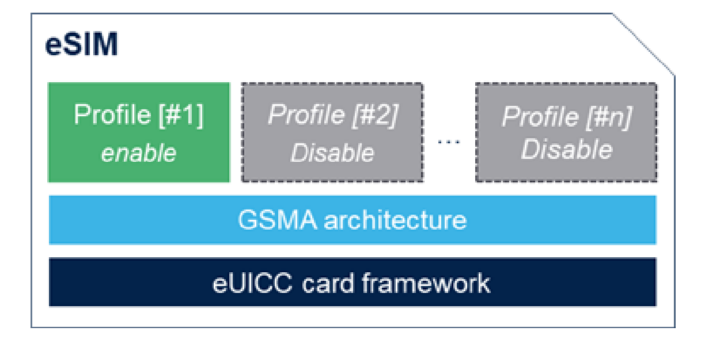
GSMA IoT protocols streamline interactions between device managers and mobile network operators (MNOs). This ensures seamless coordination among all parties involved in managing and operating IoT devices within cellular networks.
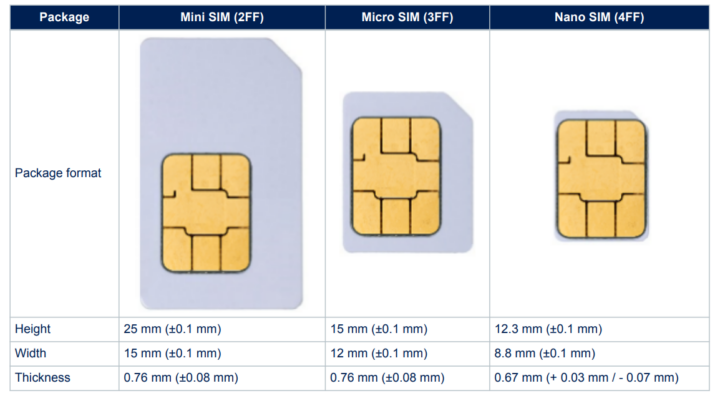
The company provides ample documentation including product specifications, EDA symbols, footprints, and 3D models along with purchasing links and much more. But at the time of writing, STMicro mentions that the product is available in a limited quantity and you have to contact their sales team to get your hands on one of these chips. More information can be found on the ST products page and their press release.
Debashis Das is a technical content writer and embedded engineer with over five years of experience in the industry. With expertise in Embedded C, PCB Design, and SEO optimization, he effectively blends difficult technical topics with clear communication
Support CNX Software! Donate via cryptocurrencies, become a Patron on Patreon, or purchase goods on Amazon or Aliexpress


